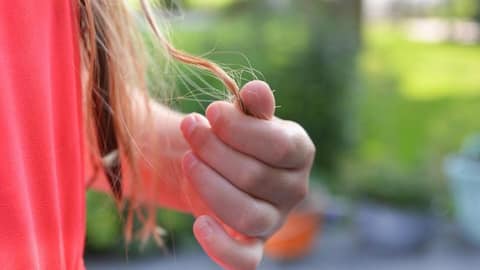Unexpected discovery: Sugar gel promotes hair regrowth
What's the story
Scientists from the University of Sheffield and COMSATS University in Pakistan have stumbled upon a potential new treatment for hereditary-patterned baldness. The team was studying the natural sugar "deoxyribose," which aids in DNA formation when they observed accelerated fur regrowth around mouse wounds. Sheila MacNeil, a tissue engineer from the University of Sheffield, proposes that using a naturally occurring deoxyribose sugar to enhance the blood supply to hair follicles could be a straightforward solution for treating hair loss.
Experiment
Sugar gel shows promise in hair loss treatment
Intrigued by their initial observation, the researchers conducted an experiment on male mice with testosterone-driven hair loss. They applied a small dose of deoxyribose sugar gel to the mice's skin daily and noticed "robust" regrowth of fur within weeks. The deoxyribose gel was found to be as effective as minoxidil, a common topical treatment for hair loss. The researchers explained that improving the blood supply to the hair bulb increases its diameter and promotes more hair growth.
Treatment
Deoxyribose gel: A potential alternative to existing treatments
Hereditary-patterned baldness, or androgenic alopecia, affects up to 40% of the global population. Currently, only two drugs are approved by the US Food and Drug Administration (FDA) for this condition: minoxidil and finasteride. However, these treatments don't work for everyone and can have unwanted side effects. The deoxyribose gel developed by the team is biodegradable, non-toxic, and promoted 80 to 90% hair regrowth in mice with male pattern baldness.
Potential
Future implications of deoxyribose gel for hair regrowth
If effective in humans, the deoxyribose gel could be used to treat alopecia or stimulate hair, lash, and eyebrow regrowth following chemotherapy. The current experiments were only conducted among male mice, but further research might find that these natural sugars could also work for female mice experiencing testosterone-driven alopecia. MacNeil acknowledges that their research is still in its early stages but notes that the promising results justify further investigation. The study was published in Frontiers in Pharmacology.
Conclusion
Deoxyribose gel: A new hope for hair loss treatment
The researchers are still unsure why the deoxyribose gel stimulates longer and thicker hair growth in mice. However, they did notice an increase in blood vessels and skin cells around the treated site. Both minoxidil and the sugar gel promoted 80 to 90% hair regrowth in mice with male pattern baldness, but combining the treatments did not make much more of a difference. The team's findings suggest that this naturally occurring sugar could potentially revolutionize hair loss treatment methods.
